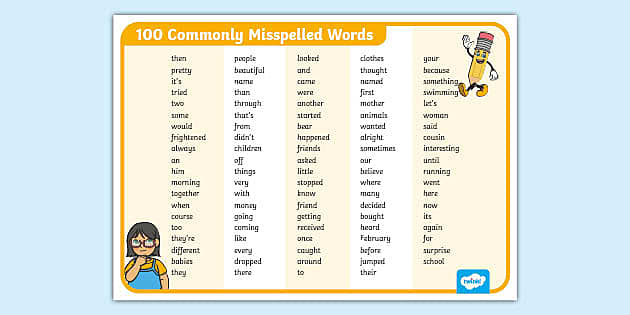The Correct Spelling Is School Not School. Some Pe – Tymoff
In the linguistic realm, the phrase “the correct spelling is school, not school. some pe – tymoff” is more than a mere twist of words; it’s a fascinating journey through the evolution of language, especially in educational contexts.
The correct spelling of the word is ‘school,’ not ‘school.’ Avoid the common mistake of placing the second ‘o’ before the first. Understand the importance of precise spelling for effective communication in education and beyond.
Join us as we unravel the significance behind the quirky quote and explore the intricate world of correct spelling.
Why Correct Spelling Matters – Unlock Clear Communication!
1.Effective Communication:
Precise spelling is the cornerstone of effective communication, preventing ambiguity and ensuring the intended meaning is accurately conveyed. It serves as a foundation for clear and unambiguous written expression.
2.Academic Foundations:
Correct spelling is fundamental in academic settings, where a strong command of language is crucial. It contributes to academic success by enabling students to articulate their thoughts accurately and proficiently in written assignments, exams, and research.

3.Professional Credibility:
Accurate spelling is a key indicator of professionalism. In the professional world, well-crafted and error-free communication is essential. Individuals who consistently demonstrate correct spelling are often perceived as more detail-oriented and competent, enhancing their credibility in the workplace.
4.Preventing Misunderstandings:
Proper spelling plays a pivotal role in preventing misunderstandings. Ambiguous or misspelled words can lead to clarity and interpretation of the intended message, particularly in contexts where precision is critical.
5.Enhancing Academic and Career Success:
Strong spelling skills contribute significantly to academic success and career advancement. Academic achievements often rely on the ability to express ideas clearly in writing, and professional contexts, individuals with impeccable spelling are more likely to be entrusted with critical responsibilities.
6.Building Confidence:
Mastering correct spelling fosters confidence in written expression. Individuals who can communicate without constant worry about spelling errors are more likely to express themselves articulately, enhancing their confidence in various personal and professional situations.
7.Preserving Language Standards:
Consistent use of correct spelling is vital for preserving language standards and norms. It ensures that written communication adheres to established linguistic conventions, contributing to a shared understanding of language and facilitating effective global communication across diverse linguistic backgrounds.
The Evolution Of The Word “School – Let’s Have A Look!
The evolution of the word “school” is a fascinating linguistic journey that spans centuries, reflecting the dynamic nature of language.
Originating from the Old English term “scol,” meaning “leisure for learning,” the word has gradually transformed in pronunciation, usage, and cultural contexts.
Maintaining the conventional spelling of “school” is paramount, serving as a linguistic anchor that connects contemporary usage to its rich historical and etymological roots.
Consistent spelling preserves linguistic continuity and holds cultural significance, representing an enduring concept rooted in communal learning and the pursuit of knowledge.

This traditional spelling contributes to linguistic stability in the face of language’s constant evolution, fostering effective communication across diverse communities and generations.
Moreover, it ensures the preservation of the word’s meaning, guarding against semantic drift and upholding a coherent understanding of educational concepts.
Read More: Evırı – Join The Movement In 2024!
Challenges In Spelling In The Digital Age – Navigate The Intricacies!
1.Online Communication Shifts:
Online platforms have given rise to a new form of linguistic expression. Informal spellings, abbreviations, and emojis are common, challenging traditional spelling norms. Adapting to this shift while maintaining accuracy becomes crucial.
2.Informal Language Evolution:
The digital era has accelerated the evolution of informal language. Slangs, abbreviations, and unconventional spellings are prevalent in digital communication. Navigating this linguistic landscape requires understanding when and where to apply formal spelling.
3.Spelling Consistency Across Platforms:
With various platforms and mediums for communication, maintaining spelling consistency becomes challenging. Words may be spelled differently in informal settings like social media compared to formal contexts, creating a need for adaptability.
4.Impact on Language Learning:
The prevalence of informal digital communication can influence language learning. Learners may encounter non-standard spellings, so differentiating between colloquial expressions and formal language is essential.

5.Attention to Detail in Professional Communication:
In professional settings, attention to detail is crucial. While digital tools aid in catching errors, individuals must remain vigilant to ensure that their professional communication adheres to standard spelling norms.
6.Balancing Speed and Accuracy:
The speed of digital communication can lead to hastily composed messages, potentially resulting in spelling errors. Balancing the need for quick responses with the importance of accurate spelling becomes a skill in the digital age.
7.Educational Strategies for Digital Spelling:
Educational institutions must adapt their strategies to address digital spelling challenges. Emphasizing both traditional spelling skills and awareness of digital language nuances prepares individuals for effective communication in diverse contexts.
Common Spelling Errors And Solutions – Uncover Prevalent Spelling Mistakes!
1.Common Mistakes:
Errors like substituting ‘their’ for ‘there,’ ‘your’ for ‘you’re,’ or confusing ‘its’ and ‘it’s’ are frequent culprits. Misspelling common words like ‘receive,’ ‘separate,’ and ‘occurred’ also tops the list.
2.Homophones and Homographs:
Confusion arises with homophones (words with similar sounds but different meanings) like ‘two,’ ‘to,’ and ‘too.’ Homographs (words with the same spelling but different meanings) such as ‘tear’ (to rip) and ‘tear’ (from the eye) pose challenges.
3.Double Letters and Silent Letters:
Doubled letters in words like ‘occurred’ or silent letters in ‘knife’ can lead to mistakes. Identifying and remembering these patterns contribute to better spelling.

4.Adding or Omitting Letters:
Adding unnecessary letters (‘definately’ instead of ‘definitely’) or omitting essential ones (‘goverment’ instead of ‘government’) are common errors that careful proofreading can address.
5.Word Endings:
Correctly applying plural forms (‘cats’ not ‘cat’s’) and verb endings (‘running’ not ‘runing’) requires attention to word endings, avoiding confusion.
6.Solutions:
Proofreading: Regularly proofread written content, focusing on common mistakes and specific words prone to errors. A fresh look can catch oversights.
Spell-Check Tools: Leverage spell-check tools, but be cautious, as they may not catch contextual errors. Manually reviewing suggestions ensures accuracy.
Mnemonic Devices: Use mnemonic devices or memory aids for tricky words. Associating sounds, patterns, or visual cues helps reinforce correct spelling.
Reading Aloud: Reading text aloud aids in identifying errors, especially homophones. Hearing the words can highlight discrepancies that may go unnoticed in silent reading.
Practice and Memory Techniques: Regular practice, including writing exercises and memory techniques, strengthens spelling skills. Flashcards, repetition, and association contribute to retention.
Reference Materials: Consult dictionaries or reliable online resources for correct spellings. Establishing a habit of checking unfamiliar words fosters accuracy.
Peer Review: Seek feedback from peers or colleagues. Another perspective can catch errors that may be overlooked individually.

Read More: Evırı – Join The Movement In 2024!
The Role Of Dictionaries And Spelling Tools – Guardians Of Linguistic Precision!
Orthographic Reference: Dictionaries serve as comprehensive repositories of words, offering standardized spellings, pronunciations, and definitions.
They provide an authoritative reference for individuals seeking accurate spellings, ensuring conformity to accepted language norms.
Guidance on Pronunciation: Beyond spelling, dictionaries offer valuable insights into the correct pronunciation of words.
This phonetic guidance aids users in avoiding pronunciation-related errors, contributing to a more holistic understanding of language.
Variants and Usage Clarification: Dictionaries often present alternative spellings, variants, and usage distinctions.
Understanding these nuances helps individuals choose the appropriate spelling for specific contexts, preventing common errors and promoting linguistic precision.
Learning Etymology: Dictionaries frequently include information about a word’s origin and etymology. Exploring the roots of words enhances one’s understanding of spelling patterns, making it easier to remember and apply correct spellings in diverse contexts.
Spell-Check Technologies: Spelling tools, including digital spell-check features, act as real-time guardians against common spelling errors.
While not infallible, these tools offer quick corrections and valuable aids in identifying and rectifying spelling mistakes during the writing process.
Thematic and Specialized Dictionaries: Specialized dictionaries cater to various fields, such as medical, legal, or scientific terminology.
These resources ensure accuracy in domain-specific spellings, providing a reliable reference for professionals in specific industries.
Language Evolution Tracking: Dictionaries evolve to accommodate changes in language usage. They document new words, spelling variations, and shifts in linguistic trends, reflecting the dynamic nature of language. Staying updated with these changes is vital for maintaining contemporary and accurate spelling.
Educational Tool: Dictionaries serve as educational tools, aiding students in building a strong foundation in spelling. They foster independent learning, encouraging people to explore correct spellings and expand their vocabulary.

Cross-Verification: Cross-verifying spellings with multiple dictionaries enhance reliability. Utilizing diverse resources helps confirm accurate spellings and mitigates the risk of relying solely on one reference.
Frequently Asked Question
1.Why emphasize the correct spelling of “school”?
The emphasis on correct spelling, especially in words like “school,” ensures effective communication, clarity, and a demonstration of linguistic competence. Misunderstandings can arise when spelling is incorrect, particularly in educational and professional settings.
2.How has the word “school” evolved over time?
The word “school” has undergone linguistic evolution, tracing its origins from Old English. Understanding its historical journey helps us appreciate the importance of maintaining its conventional spelling and cultural significance in the English language.
3.What impact does digital communication have on spelling?
In the digital age, tools like autocorrect influence spelling skills. While they offer quick fixes, over-reliance can hinder manual spelling proficiency. The evolution of online communication platforms also introduces unconventional spellings, challenging traditional norms.
4.Why is the correct spelling of “school” crucial in educational and professional contexts?
Accurate spelling words like “school” are not just a matter of linguistic pride; it directly influence academic and professional success. Spelling errors can impact credibility, reflecting on one’s education and intelligence and emphasizing the importance of linguistic accuracy.
Ending Note:
Finding the right way to write “school” is like solving a puzzle. It’s not just about spelling; it’s about getting our words right for clear communication. Understanding this helps us speak and write better, connecting our past and future through words.
Read More:






